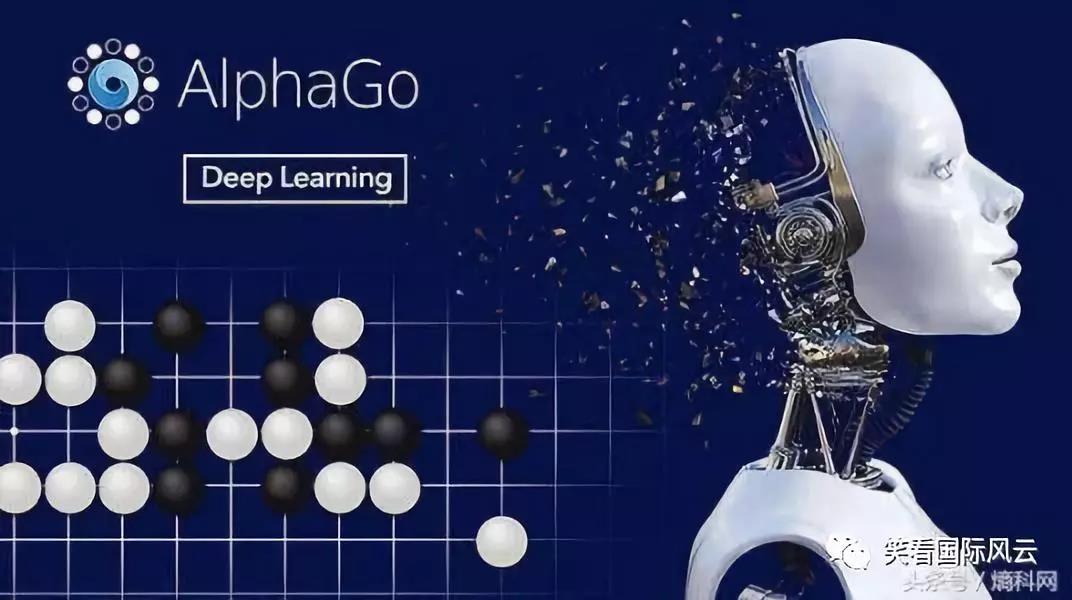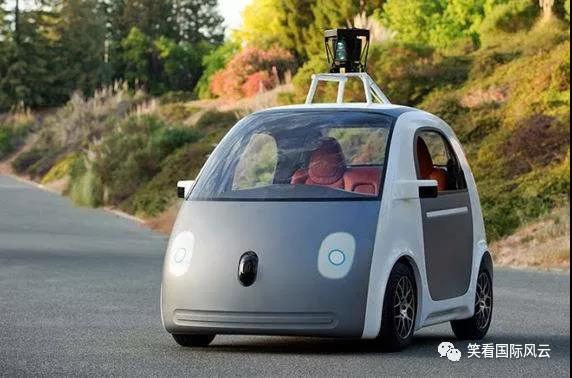 czhongda@czhongda.com.cn
czhongda@czhongda.com.cn
 SEARCH...
SEARCH...
 czhongda@czhongda.com.cn
czhongda@czhongda.com.cn
 SEARCH...
SEARCH...




Not long ago, the Political Bureau of the CPC Central Committee held the ninth collective study on the status quo and trends of artificial intelligence development. In his study, General Secretary Xi Jinping emphasized that artificial intelligence is a strategic technology that leads this round of scientific and technological revolution and industrial transformation, and has a strong “head geese” effect. Accelerating the development of a new generation of artificial intelligence is an important strategic strategy for us to win the initiative of global science and technology competition, and is an important strategic resource to promote China's science and technology leapfrog development, industrial optimization and upgrading, and overall productivity jump.
Why is artificial intelligence so important? How to carry out research and development and lay a solid foundation for the development of a new generation of artificial intelligence? How to strengthen the integration of artificial intelligence and industrial development, and provide new kinetic energy for high-quality development? How to strengthen the combination of artificial intelligence and guarantee and improve people's livelihood, and promote the deep application of artificial intelligence in people's daily work, study and life?
If the first industrial revolution driven by steam technology extends the human body and expands the human power, then a new round of technological revolution and industrial transformation driven by a new generation of artificial intelligence technology will expand human intelligence. Greatly enhance the value that human intelligence can create.
At present, artificial intelligence begins to enter the explosive growth period. China should seize the opportunity to accelerate the layout of artificial intelligence, harvest artificial intelligence dividends, and strive to become the leader in the development of artificial intelligence.

Alpha dog defeated the world's top Go master, writing robot officially launched ... In recent years, artificial intelligence technology has frequently appeared, becoming a hot new global technology favorite.
The development of artificial intelligence has been deployed in various countries around the world: In May 2016, the United States established the Sub-Committee on Machine Learning and Artificial Intelligence, which is responsible for coordinating the research and development of artificial intelligence across departments; the Japanese government and the business community have made artificial intelligence a new One of the core technologies of the scientific and technological revolution and industrial transformation, and established a relatively complete research and development promotion mechanism at the national level; in March 2017, the French Ministry of Economic Affairs and the Ministry of Education and Research released the "Artificial Intelligence Strategy", aiming to incorporate artificial intelligence. In the original innovation strategy and measures, plan for future development...
For artificial intelligence, China also attaches great importance to it. In 2017, it released the “New Generation Artificial Intelligence Development Plan” and the “Three-Year Action Plan for Promoting the Development of a New Generation of Artificial Intelligence Industry (2018-2020)”.
Why is artificial intelligence so hot? How will it affect the future economic and social development? What does artificial intelligence mean for China?
a strategic technology
It has a deeper drive and influence on all walks of life and has a "head geese" effect.
After more than 60 years of development, artificial intelligence has gone out of the laboratory and is profoundly changing the production and life of human beings.
"In the past 10 years, under the help of algorithmic breakthroughs represented by deep learning and the perfect information environment represented by big data, artificial intelligence has entered the practical stage, which can solve many kinds of complicated problems more effectively than any other in history. The period is closer to the level of human intelligence, and even surpasses humans in some respects," said Huang Tiejun, director of the Department of Computer Science and Technology at Peking University.
Since the middle of the 18th century, there have been three industrial revolutions, and now a new round of technological revolution and industrial transformation is ushered in. If the first industrial revolution driven by steam technology extended the human body, it expanded the power of human beings. Then, a new round of technological revolution and industrial transformation driven by a new generation of artificial intelligence technology will expand human intelligence and greatly enhance the value that human intelligence can create.
"Artificial intelligence technology is a universal technology that can be applied in all fields of human society. It is expected that the level of intelligence will continue to increase in the future, and the driving and influence of various industries will be more profound. This is difficult to compare with other technologies." Say.
Artificial intelligence can give machine understanding.
Based on the traditional calculation method, the machine can only process the information according to the pre-written program. Once there is no preset situation, or need to combine a large number of context judgments, the machine can't do anything about it. Artificial intelligence can give the machine a "brain" of understanding, allowing the machine to interpret the "semantics" of words and data, and obtain the rules of judgment through self-learning.
In October of this year, in the machine reading comprehension level test SQuAD1.1, the BERT model created by the Google artificial intelligence team completely surpassed humans in all two metrics, and advanced the ability of the machine to understand human language. .
Artificial intelligence can give machine awareness.
Prior to the application of artificial intelligence, all machines were not capable of sensing and had no communication skills. Artificial intelligence gives the machine visual, audible, and tactile sensations that enable it to sense the environment and communicate with humans.
Artificial intelligence can give the machine the ability to move autonomously.
The machine with autonomous movement ability can complete a variety of tasks such as sensory information processing, decision making, and commanding moving parts in a very short time, and complete the interaction with the environment.
Currently, driverless cars are a hot spot for innovation in autonomous sports machines. Waymo has completed 12.87 million kilometers of road testing, and is not far from launching practical products; Baidu and FAW Red Flag are planning to launch L4-class self-driving cars in 2020.
“Artificial intelligence is a strategic technology with the effect of “head geese” by ‘emphasizing’ the relevant traditional fields, enabling it to achieve major technological innovations and product upgrades,” said Tan Tieniu, an academician of the Chinese Academy of Sciences.

An important strategic resource
Promote industrial optimization and upgrading, and overall productivity jump
The continuous development of a new generation of artificial intelligence technology has enabled it to be quickly and widely recognized and accepted by the industry, and has been applied to all walks of life, injecting new and powerful impetus into economic and social development: the report released by consulting firm Accenture in September 2016 pointed out Through the application of artificial intelligence technology, by 2035, the annual economic growth rate of 12 developed countries such as the United States, Japan and Britain can be doubled on average; in 2018, the research report released by McKinsey said that by 2030, artificial intelligence will increase the economy. It will reach $13 trillion and its contribution to global economic growth is comparable to other transformative technologies such as steam engines.
Artificial intelligence can create a new “virtual workforce” to more efficiently complete existing work.
Currently in China, the “virtual labor force” has begun to replace many single repetitive tasks. Financial institutions, operators, banks, e-commerce, etc. have begun to use virtual customer service to replace manual customer service.
Artificial intelligence can increase the ability of existing labor and physical capital to automate on a larger scale.
The type code of the microwave oven and the label on the side of the refrigerator are the most labor-intensive places in the production line. Now, Intel's artificial intelligence experts have invented an industrial vision inspection cloud to do this easily, and at a much faster rate than manual.
Artificial intelligence can also promote innovation, improve existing products and services, and even create entirely new products and services.
In the case of manufacturing, artificial intelligence captures and analyzes data from all aspects of the manufacturing process, thereby improving production operations and making control decisions in real time.
In addition, the application of artificial intelligence in the fields of transportation and medical care has greatly improved the level of service precision, comprehensively improved the quality of life of the people, and made life more convenient.
Taking drug development as an example, in 2015, Atomwise, a US Silicon Valley company, based on existing drug candidates, applied artificial intelligence algorithms to successfully find two candidate drugs that can control Ebola virus in less than one day.
Artificial intelligence technology provides China with an opportunity to overtake a corner. As a big manufacturing country, China's low-cost advantage has gradually disappeared in recent years, and the transformation and upgrading of manufacturing industry is imminent.
"Using a new generation of artificial intelligence technology will be the key to seize the opportunity to accelerate development." Song Jiqiang, president of Intel China Research Institute, said, "In this sense, artificial intelligence technology is indeed promoting China's science and technology leapfrog development, industrial optimization and upgrading. An important strategic resource for the overall productivity jump."
An important strategic hand
Whether it is able to win the initiative of global science and technology competition, China has the ability to rank among the forefront of artificial intelligence development
At present, the major developed countries in the world have taken the development of artificial intelligence as a major strategy to enhance national competitiveness and safeguard national security. They have stepped up their efforts to plan and strengthen their deployment around core technologies, top talents and standards, and strive to compete in a new round of international science and technology competition. Master the dominance -
In October 2016, the US National Science and Technology Commission issued two important documents, “Preparing for the Future of Artificial Intelligence” and “National Artificial Intelligence Research and Development Strategic Plan”, which raised artificial intelligence to the national strategic position;
In April 2018, the European Commission plans to invest $24 billion in artificial intelligence from 2018 to 2020;
In May 2018, France released the "French Artificial Intelligence Strategy", which aims to make France a strong country of artificial intelligence;
In June 2018, Japan's "Future Investment Strategy" focused on the construction of Internet of Things and the application of artificial intelligence;
In July 2018, the German federal government passed the document entitled "Federal Government Artificial Intelligence Development Strategy Essentials". It is hoped that by implementing this outline document, the country's research and development and application of artificial intelligence will be upgraded to the global advanced level...
Every technological revolution and industrial change in the past will promote the great development of the entire human society. However, the previous industrial revolutions originated in the West and were dominated by their innovation. Nowadays, we are welcoming a new round of scientific and technological revolution and industrial transformation in the world. We must not miss this major historical opportunity.
"If we can't have the right to speak in the field of artificial intelligence, we can't leap into the high-end of the global value chain in the future, and we can't have global influence." Liu Qingfeng, chairman of Keda Xunfei said.
At present, in the field of artificial intelligence, China can basically keep pace with the development of the world's advanced countries, and it is fully capable of being among the forefront: First, China has emerged a group of competitive enterprises and research institutions with good development foundation; Second, a large population. The massive data generated by the base is the precondition for “training” artificial intelligence systems; third, the wide industry distribution also provides a broad market for artificial intelligence applications.
Experts pointed out that artificial intelligence is now entering the bonus period of explosive growth. China should seize the opportunity to accelerate the layout of artificial intelligence, harvest artificial intelligence dividends, and strive to become the leader in the development of artificial intelligence.